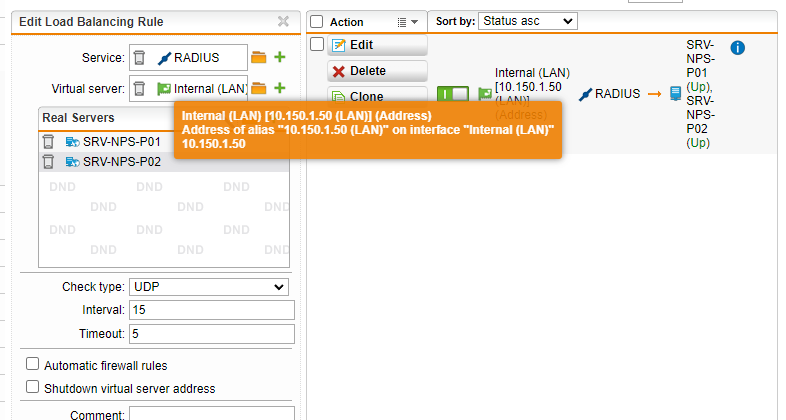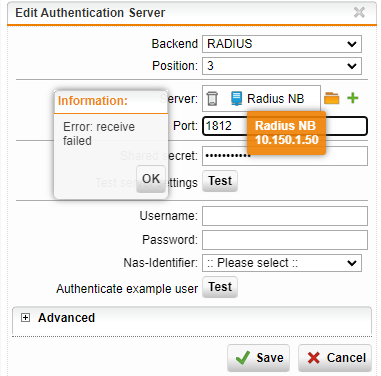I'm trying to understand how the Load Balancing section works in UTM. As an example I'm trying to create a RADIUS load balancing group and use that for authentication purposes. Right now I have a host Availability Group with both RADIUS servers and I'm using that as an Authentication Server and this works. But this doesn't handle weight distribution, for example, so I wanted to try to use Load Balancing.
For my Load Balancing test I've picked the RADIUS service and then added the two RADIUS servers as Real Servers and finally I picked the UTMs internal address as the Virtual Server. Unfortunately attempting to then use this setup in the Authentication Servers section didn't work (I've added the UTMs IP as the target), so clearly something else missing. I think my assumption that just specifying the Virtual Server as the UTMs internal address and then hoping everything will work was too naïve of me but I don't know what else is required to make this work. What am I missing?
This thread was automatically locked due to age.


